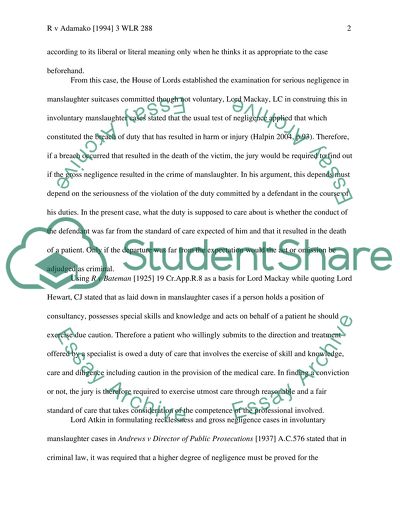Cite this document
(“R v Adomako, Law case Essay Example | Topics and Well Written Essays - 1500 words”, n.d.)
Retrieved from https://studentshare.org/law/1480406-r-v-adomako-law-case
Retrieved from https://studentshare.org/law/1480406-r-v-adomako-law-case
(R V Adomako, Law Case Essay Example | Topics and Well Written Essays - 1500 Words)
https://studentshare.org/law/1480406-r-v-adomako-law-case.
https://studentshare.org/law/1480406-r-v-adomako-law-case.
“R V Adomako, Law Case Essay Example | Topics and Well Written Essays - 1500 Words”, n.d. https://studentshare.org/law/1480406-r-v-adomako-law-case.


